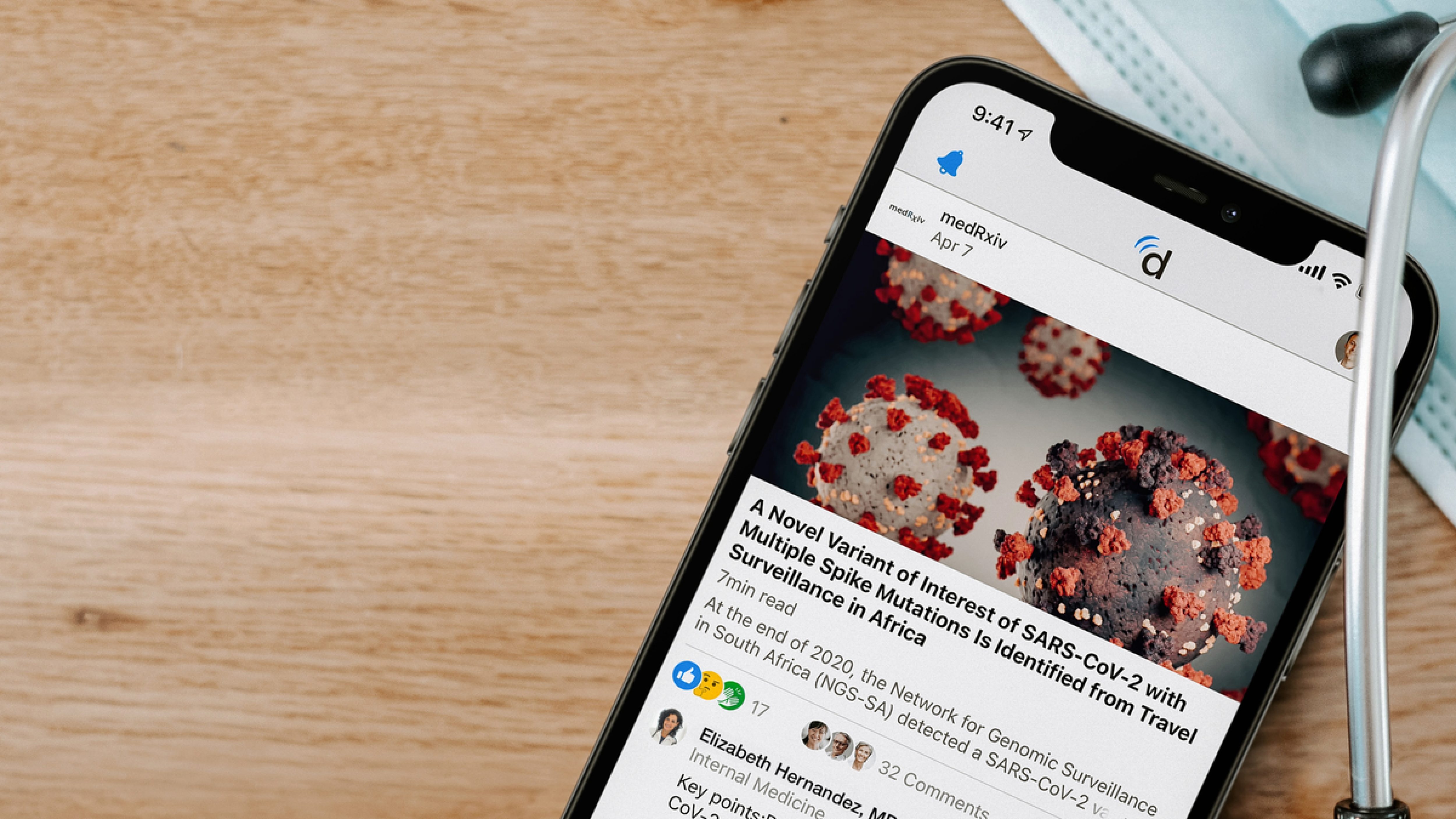Doximity, the LinkedIn for Doctors, Is Apparently Rampant With Vaccine Misinformation

Medical professionals have become some of the most important individuals in society during the pandemic, working countless hours to save the lives of covid-19 patients and encouraging the public to get vaccinated. However, it appears that even the medical community isn’t immune to the vaccine misinformation plaguing the internet.
A new CNBC report has found that Doximity, a social media network for doctors with 1.8 million members, including 80% of physicians in the U.S., is rampant with misinformation spread by professionals who are supposed to be grounded in science. If you’ve never heard of Doximity, it’s because you’re not a doctor. Only practicing medical professionals can join the social network, and their credentials, such as their medical license and hospital badge, are verified by the company. Users also can’t post their own content. They’re only allowed to comment on content posted by Doximity.
The closed community and verification aspect only makes the misinformation being posted more worrisome. Doximity is purportedly full of comments posted by physicians that claim covid-19 vaccines are experimental, unproven, or deadly. Some refer to Dr. Anthony Fauci, the White House’s chief medical advisor, as “Fauxi.” Other doctors have claimed the antibodies that develop when people become infected with the virus are more effective than vaccines.
In response to a June article about a federal judge that dismissed a lawsuit brought on by employees of a Houston hospital that refused to comply with its vaccine mandate, a surgeon repeated a lie spouted by Fox News host Tucker Carlson.
“Covid-19 vaccines have already killed over 4,000 adults who’ve received the vaccine,” the surgeon wrote, according to the CNBC report. “To mandate a vaccine that has already killed over 4,000 is akin to murder.”
G/O Media may get a commission
All of the above assertions are, of course, false. The three covid-19 vaccines used in the U.S. are safe and effective, as explained by the Centers for Disease Control and Prevention. They have been given an emergency use authorization by the Food and Drug Administration. In addition, there are reports that the FDA plans to fully approve the Pfizer-BioNTech vaccine in early September. And if you’ve had covid-19, the CDC still recommends you get vaccinated.
As far as the claim about 4,000 deaths, the CDC analyzed the death reports and determined there is “no causal link to COVID-19 vaccines.”
The surgeon’s Doximity post is only the tip of the iceberg, though. CNBC states that articles about vaccines or masks on the social network have hundreds of comments, many of which are inaccurate or based on conspiracy theories.
Theoretically, these comments shouldn’t be on the social network at all. In its community guidelines, Doximity prohibits “content that contradicts widely accepted public health guidelines.” This explicitly includes unverified claims about the effectiveness and side effects of vaccines authorized by the FDA, claims that public health officials are knowingly giving out false information, and claims that discourage good public health behaviors (e.g., social distancing, masking), among many others.
In a statement to CNBC, the company said that while the exchange of views about emerging science and medical news was allowed, medical misinformation was not.
“Like most virtual communities, we have community guidelines in place to ensure that Doximity remains a safe and respectful environment,” Doximity said. “We employ a rigorous clinical review process, staffed by physicians, to evaluate member comments that are flagged as being potential misinformation.”
As we all know by now, misinformation is complicated. It’s not only about what’s being said, but also about who’s repeating it and the sway they have with others. Misinformation can also have disastrous consequences, as the riot at the Capitol on Jan. 6 carried out by people supporting former President Donald Trump showed us. So Doximity, it’s one thing to have guidelines, it’s another thing to actually do something.
Here’s to hoping you all do take action before we have yet another crisis on our hands.
You can read CNBC’s impressive report on Doximity here.

